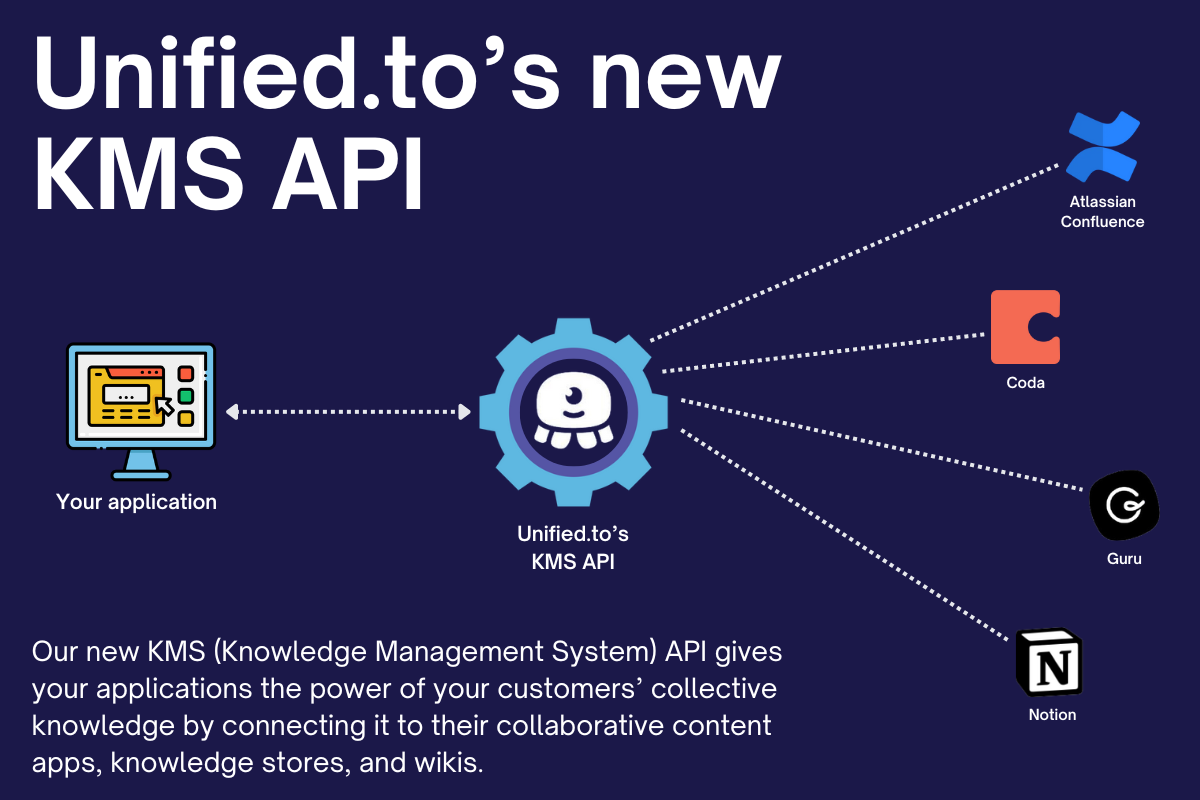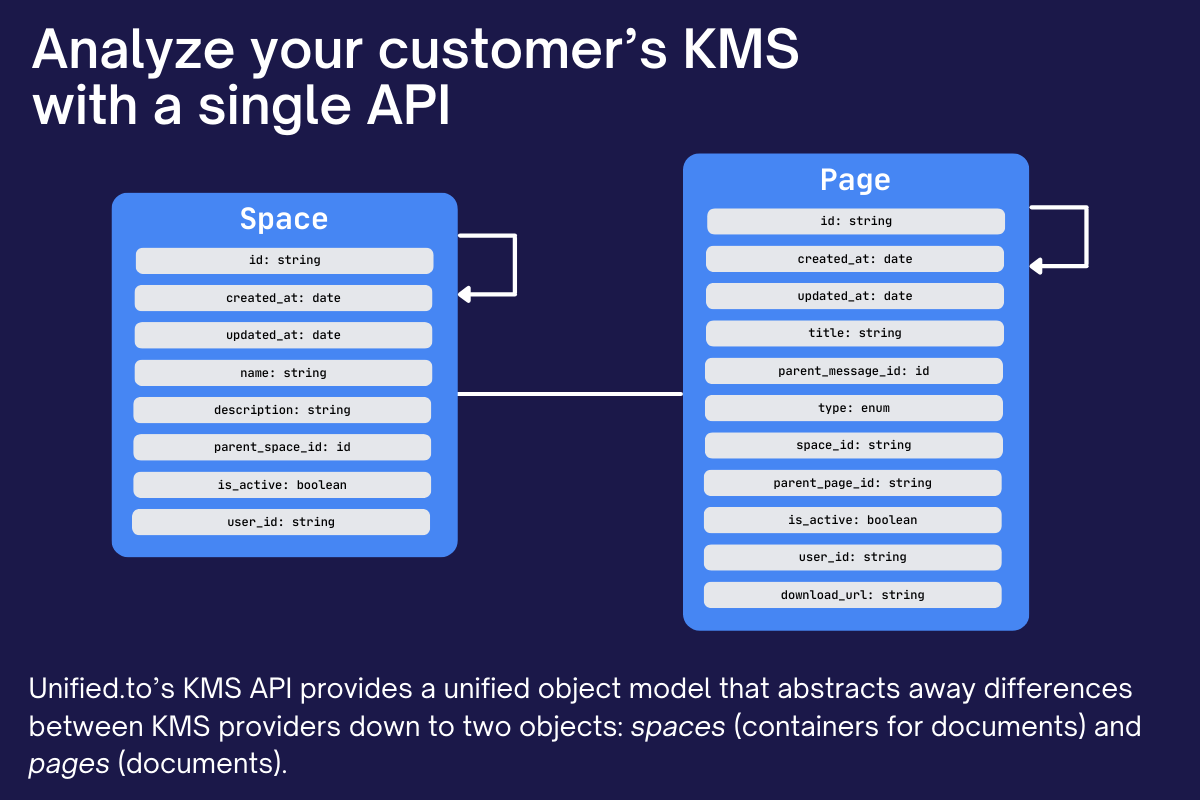Introducing Unified.to's KMS API
May 29, 2024

Our unified API has a brand new category: knowledge management systems (KMS)! With Unified.to, your applications can leverage your customers' organizations' collective knowledge by accessing the content of these collaborative content applications and wikis:
…and do so with a single API.
Analyze your customers' KMS with a single model

These applications come from different vendors, provide different names for the way they organize content, and have different APIs. Unified.to abstracts away these differences to two unified objects that represent key concepts shared by these KMS applications:
- Space: A collection or container of pages (KMS documents) or other spaces. It represents various KMS applications' versions of these collections, such as spaces, folders, and workgroups.
- Page: An individual document, which most KMS applications call a 'page.' A page is the fundamental item in a KMS, acting as a container for content. Most KMS applications can organize pages into collections or as a hierarchy of parent and child pages, and Unified.to's object model supports this.
Find lost knowledge and new insights
Institutional knowledge, despite being documented in a knowledge management system, often becomes inaccessible amid shifting priorities, staff turnover, and the daily demands of business operations. By integrating our API, your applications can extract from your customer's KMS, perform searches for key words, phrases, and patterns, identify documents that merit review, transform valuable data into a structured format and move it to the appropriate datastore.
Pairing our KMS API with a large language model (LLM) unlocks a wealth of additional possibilities and opportunities. The LLM can interpret and contextualize the information in your knowledge management system, yielding a wealth of use cases, including:
- Meeting summaries: An LLM can take meeting notes — or better yet, different people's notes from the same meeting — and organize them into a one-paragraph summary, a full report, or a prioritized action list.
- Automated documentation: When provided with pages created by a team collaborating on a project, an LLM can generate a précis of the project's progress to date and write summaries of the project. Given the pages from an HR department, it can be used to create an excellent starting draft of an employee manual. Daunting tasks such as preparing for presentations, earnings calls, and annual general meetings can be greatly simplified with an LLM backed by the information in your KMS.
- Converting natural language into structured data: The newer LLMs are adept at taking written information and observations and converting them into tables, structured formats such as JSON or XML, or even SQL statements. Simple textual notes in your KMS can be turned into forms that are more suitable for data storage and processing.
- Q&A and knowledge discovery: By using retrieval-augmented generation and your KMS as the external source of knowledge, you can build an application that lets you get real-time answers to questions about your organization. This can simplify searching for knowledge that would otherwise be lost and lead to insights you might not otherwise have gained.
Try Our KMS API Now
Our unified KMS API is available on all Unified.to workspaces on every plan — even our free one. Once you've created your Unified.to account, you can activate integrations to LLMs and 190+ SaaS integrations in seconds and start building applications that can provide analysis and insights from knowledge management systems and other real-time data.
See how easy it is to use our real-time unified API by signing up for our free 30-day unlimited-use Tester plan.
